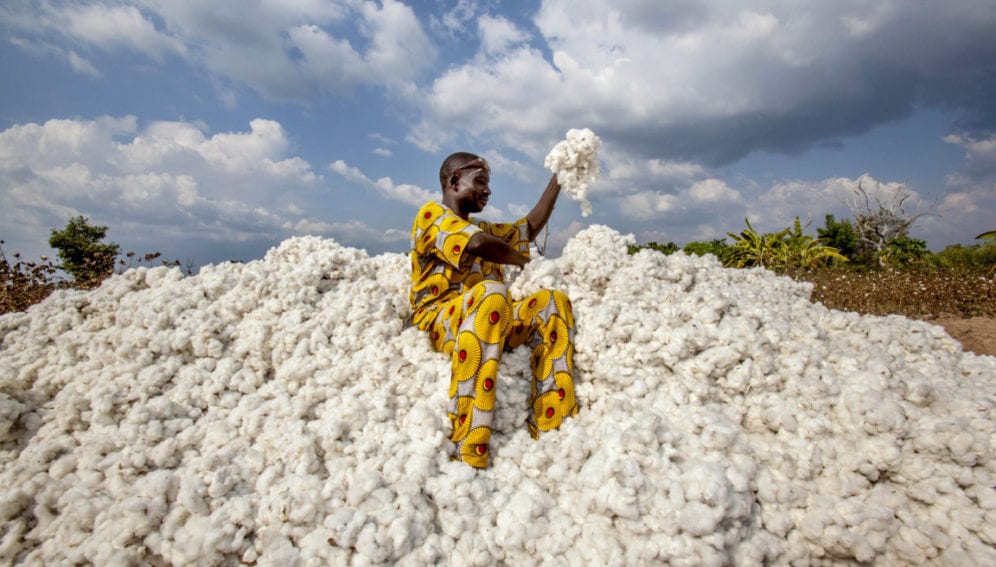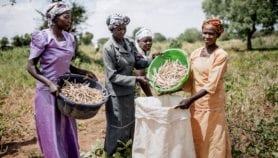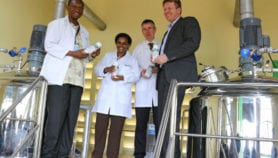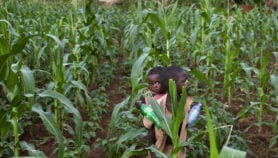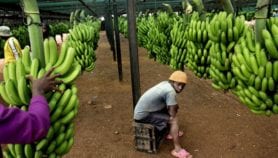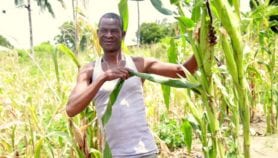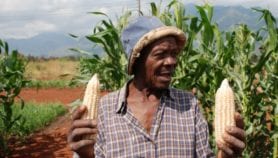By: Gilbert Nakweya
Send to a friend
The details you provide on this page will not be used to send unsolicited email, and will not be sold to a 3rd party. See privacy policy.
[NAIROBI] Policymakers and agricultural experts have recommended that African governments should be more proactive in using science, technology and innovation—especially biotechnology—to address food security challenges facing the continent.
The experts are of the view that the continentis not doing enough on legislation and policymaking to promote biotechnology.
At a meeting of the Open Forum on Agricultural Biotechnology in Africa (OFAB) held in Kenya on 26 February, policymakers and agricultural experts discussed the latest report on commercialised biotechnology crops.
“We must be educated and convinced that genetic engineering is safe for our people.”
John Serut, Mt Elgon constituency, Kenya
The 2014 report, published by the International Service for the Acquisition of Agri-biotech Applications (ISAAA), notes that Africa continues to make gradual progress in the adoption of biotechnology, with Burkina Faso, South Africa and Sudan commercialising Bt cotton, while Cameroon, Egypt, Ghana, Kenya, Malawi, Nigeria and Uganda have conducted field trials on pro-poor crops such as maize and bananas.
“The WEMA [Water Efficient Maize for Africa] project is scheduled to deliver the first stacked biotech drought-tolerant maize with insect control (Bt) in South Africa in 2017,” the report adds. “Responsible, rigorous but not onerous, regulation is urgently needed to suit the needs of small famers and poor developing countries.”
Experts at the OFAB, a platform organised by the Kenya-headquartered African Agricultural Technology Foundation and the AfriCenter of the International Service for the Acquisition of Agri-biotech Applications (ISAAA) in Kenya, were concerned that African countries are not investing much in biotechnology although it offers solutions to the challenges facing the continent such as climate change, droughts, diseases and rapid population growth.
Richard Oduor, a senior research fellow at Kenya’s Kenyatta University, says Africa’s population is expected to rise to 4 billion in 2050 from the current 1.1 billion, requiring the continent to work on technologies that will ensure food security to feed its populations sufficiently.
Oduor adds that Kenya has the research and regulatory capacity as well as the human resources to adopt biotechnology but there is lack of political goodwill.
Kenya’s parliament debated biotechnology on 25 February, with the discussions aimed at drafting favourable laws and persuading the government to see the role of biotechnology in addressing Kenya’s challenges such as food insecurity.
Lawmaker Robert Bukose, Kenya’s vice-chairman of the parliamentary committee on health, tells SciDev.Net that public misinformation about biotechnology and genetically modified organisms has been a challenge to the adoption of the technology in Africa. “We need sustained communication with society on biotechnology as we need it to address the challenge of starvation in Africa,” Bukose says.
Parliamentarians Wilbur Otichillo and Cecilia Ngetich are urging the adoption of biotechnology, but fellow legislators are challenging scientists and biotechnology partners to sensitise the people to achieve success.
“We must be educated and convinced that genetic engineering is safe for our people,” says John Serut, who represents Mt Elgon constituency in Kenya.
>Link to the report
This article has been produced by SciDev.Net's Sub-Saharan Africa desk.


